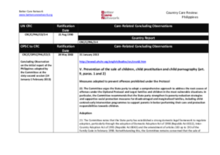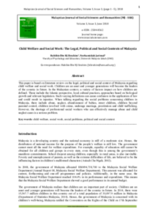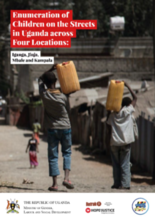Displaying 41 - 50 of 228
This country care review includes the care related Concluding Observations adopted by the Committee on the Rights of the Child and the Committee on the Rights of Persons with Disabilities.
The purpose of this report is to share with local and national governmental leaders about Kisumu’s successes in significantly reducing the street population within the city and to inform others of the successful (and unsuccessful) interventions deployed in order to achieve these results.
This chapter from the book Resilience and the Re-integration of Street Children and Youth in Sub-Saharan Africa is comprised of two studies. The first study provides an analysis of the psychological situation of street children and youth in Yaoundé and Douala, while the second one deals with resilience building within a rehabilitation home.
The purpose of this study is to point out the experience of sexual and physical exploitation and its determinant factors among street children in Addis Ababa, the capital city of Ethiopia.
The current longitudinal study examined the prevalence, overlap, and impact of adverse childhood experiences (ACEs) in a sample of Brazilian children and adolescents who use city streets as spaces for socialization and survival (i.e., street-involved youth).
This qualitative study explored life experiences of children living on the streets in Eldoret, Kenya.
This study sought to determine the risk and prevalence of drug abuse among street children focusing on those in the car parks in the Gambia.
This paper is based on literature review on the legal, political and social context of Malaysia regarding child welfare and social work.
The goal of this research project is to inform policy and practice in Uganda by providing an estimate of the number of children on the streets in Kampala, Jinja, Iganga and Mbale; insight into the characteristics of these children; and exploration of children’s perspectives of their engagement on the streets.
This article explores main and underlying reasons for why children may be or may feel unwelcome in the home and thus migrate to the street.




